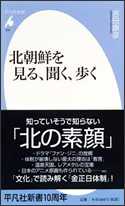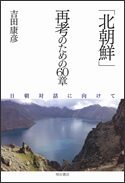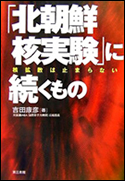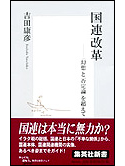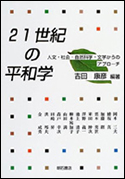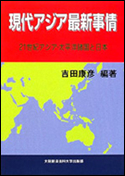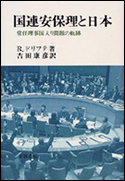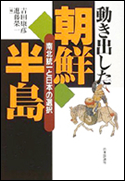NUCLEAR ISSUE
Denuclearization of Korea is at a standstill allegedly as a result of the DPRK’s refusal to submit a full and accurate list of the nation’s nuclear programs by the end of 2007, as scheduled under the October 3 agreement of the six-party talks in Beijing.
The DPRK claims that the delay was caused by the U.S. negligence to remove North Korea from the list of terrorist-sponsoring nations and the delay in delivery of heavy oil and other aid in accordance with the principle of simultaneous action. The DPRK has been designated as such since 1988, along with Cuba, Iran, Sudan and Syria, as well as one-time Iraq.
Dated on 1 December 2007, President George Bush sent a letter to Chairman Kim Jong-Il, addressing him “Dear Mr. Chairman.” In his letter, Mr. Bush noted that a full declaration of the DPRK’s entire nuclear programs is a pre-requisite to lifting from the terrorist-sponsoring nations. However, Pyongyang remains unchanged in its claim that action must be simultaneous.
The State Department is yet to notify Congress of its intention to remove the DPRK from the list of terrorist-sponsoring nations. The notification has to be made 45 days in advance.
It is the Bush Administration that is under stronger pressure in terms of time limit. Close aides to Mr. Bush, such as Condolezza Rice, are keen to achieve diplomatic feats in favor of President Bush, by bringing about total abolition of nuclear weapons from the Korean Peninsula, namely North Korea, before he retires in January 2009. Senior Pyongyang leaders have told me that the DPRK is definitely determined to win a diplomatic victory over Washington, no matter how long it may take. It is prepared to deal with the next administration, even after 2009, no matter who may become President.
Another point of the October 3 agreement is disablement of all existing nuclear facilities, which is in a steady progress. American experts are now working at three sites; the nuclear reactor, reprocessing plant and nuclear fuel manufacturing plant, to achieve the disablement.
Therefore, my conclusion is that the Bush Administration would finally have to make a compromise to achieve denuclearization of the Koran Peninsula before the next Presidential election in November 2008.
U.S.-DPRK RELATIONS
While the denuclearization process is slowed down, whole relationship between Pyongyang and Washington is not necessarily worsened. One symptom is the planned visit of the renowned New York Philharmonic Orchestra to North Korea in February 2008. It will give a performance in Pyongyang on 26 February, after a brief visit to Beijing. From Pyongyang, it will proceed to Seoul.
It was officially announced in New York on 11 December 2007 at a news conference attended by DPRK Ambassador Park Gil-Yong to the United Nations.
Kim Jong-Il is most likely to attend the performance, since he is a well-known champion of arts and culture.
The performance tour was proposed by Vice Foreign Minister Kim Kae-Guang, and realized by Assistant Under-Secretary Christopher Hill. Both are chief delegates to the six?party talks in Beijing.
The Bush Administration also endorsed a 20-million-dollar humanitarian aid program, under which a set of electric dynamos as well as medical equipment for local hospitals outside Pyongyang, will be provided through four non-governmental organizations including the Mercy Caw, Samaritan Path, and Global Resource Services.
The United States and North Korea also plan to make sports exchanges to promote mutual understanding. Informed sources in Washington say that a visit of North Korea’s female football team for goodwill games with American teams is being planned after the orchestra’s tour. North Korean is proud of female footballers, who won the Asian championships in 2001、02 and 06. In June 2005, a group of female American boxers visited Pyongyang for goodwill matches.
Japan’s ASAHI SHIMBUN reports from New York that historically, sports exchanges often precede a dramatic political compromise. The invitation extended by Chinese table-tennis players to their American counterparts and the subsequent visit to Beijing in 1971 ushered in the normalization of Sino-American diplomatic relations in the following year.
The report adds that the New Yorkers’ visit to Beijing may be a prelude to the similar political drama in the Pyongyang-Washington relationship.
JAPAN-DPRK RELATIONS
Of the participants in the six-party talks in Beijing, Japan is the sole country that remains tense and worst in its relations with North Korea.
The abduction issue remains unsettled. During the second North-South summit in Pyongyang in 24 October 2007, Chairman Kim Jong-Il reportedly told his South Korean counterpart, Mr. Roh Moo-Hyung, that there are no more Japanese abductees detained in the north. It is Pyongyang’s official position that the abduction issue has been settled.
However, the Japanese Government maintains that there should be no solutions to the issue, until all the missing Japanese, at least 12 Japanese nationals officially designated as such, return home safe and sound. Pyongyang has repeatedly said that they are all dead, and Mr. Kim Jong-Il apologized to Japanese Prime Minister KOIZUMI during his one-day visit to Pyongyang in September 2002, for the abduction which occurred because of what he termed “heroic and blind acts” of intelligence agents. DPRK diplomats argue that Japan makes unrealistic demands in asking for reviving the dead.
The Japanese Government’s position, however, has made a slight change toward the issue, since Mr. FUKUDA Yasuo came to power in September 2007. Mr. FUKUDA is anxious to come to a compromise solution with Pyongyang during his premiership.
Secret contacts were held twice by diplomats of the two countries in Shen Yang and Da Lieng in Northeast China each in November and December 2007. Details of their contacts have been kept confidential, but some solution scheme acceptable to both sides is sure to be being shaped up.
Tokyo and Pyongyang are left wide apart in their differences over the abduction issue. A major obstacle is how the Japanese Government could manage to tell the nation that there is no other choice than to accept the deaths of the remaining abductees for the sake of Japan’s national interests.
The Pyongyang leadership is optimistic about the prospects, however, because they are confident that Japan would mover along with the U.S. Once Washington moves, so does Tokyo, they say.
JAPAN’S INVESTMENT ON NORTH KOREA’S MARKET
Last October the Japanese Government further extended its economic sanctions against the DPRK, which are valid until mid-April 2008. All trade and investment has been reduced to almost zero, except for humanitarian shipment at a civilian level. Travels of government officials are forbidden, and civilians discouraged. These measures are all in protest against what Japan regards as insincere and irresponsible behavior of North Koreans over the abduction issue.
The ethnic Korean minority group in Japan is hardest hit by the government policies. The pro-Pyongyang National Federation of Korean Residents in Japan (CHOSEN-SOREN) has repeatedly protested the Government against what it called “suppressive” policies, which are nothing to do with the abduction case.”
Under the umbrella of CHOSEN-SOREN, there are 38,000 Korean businessmen with 8,800 enterprises registered in Japan. They range from small and medium-sized manufacturing (mostly light metal and clothes) industries, computer software business, and food and beverage exporters, to fishery and marine products importers. However, no list is available. Furthermore, any attempt to compile such a list has been scrupulously avoided to prevent the government and police auhorities from interfering into their business.
I am aware of a dozen of bankrupt Korean businessmen engaged in direct trade with North Korea, some of whom have successfully shifted their transactions to triangular route through China, namely from North Korea to China, and then from China to Japan, and vice-versa. Clams and crabs are among the most popular items for exports to Japan, while used cars and bicycles are most welcomed in North Korea.
Cash remittance is also under strict control between Japan and North Korea. It is almost impossible. Liquidation is made through Chinese banks as well.
Pro-North Korean residents are patiently awaiting US-DPRK diplomatic thaw. Once diplomatic ties are normalized between Tokyo and Pyongyang, Japan has promised to extend more than 10-billion dollars in economic aid to North Korea, as part of compensation for Japan’s past colonial rule of the Korean Peninsula. Japan did so to South Korea in 1965, when the two countries normalized relations.
NORTH KOREA’S ECONOMIC SITUATION AND MARKET OUTLOOK
According to the Bank of Korea in Seoul, total trade volume between China and North Korea in 2007 is estimated to have amounted to 2-billion US dollars, while commerce between North and South valued at 1.5-billion dollars. China and South Korea, therefore, are top trade partners for North Korea, accounting for nearly 80 percent of Pyongyang’s total foreign trade volume. Trade with China alone has gone up to 53 percent of total value (nearly 4-billion dollars) in 2007 from 48 percent in 2004. The rest is filled by Thailand, Russia, Japan, Vietnam, Indonesia, and other Southeast Asian countries in this order.
North Korea’s economy is sluggish, however. Main reasons are; (1) that the nation’s infrastructure is almost totally destroyed with repeated natural disasters. (The extensive area was hit by heavy rainfalls in August 2007, with more than 600 people killed and missing,) and (2) that there are scarcely no export items except for iron ore and rare metal resources, and consequently no foreign currency reserves for procurement.
China’s investments are increasingly active on iron ore and rare metal resources, such as graphite, phosphorus, silicone, molybdenum, magnesium, thorium, lithium, titanium, cobalt, cadmium, tungsten, strontium and zirconium, which are abundantly concentrated in the north and northeastern districts of North Korea. Iron ore mines in Musan near the Korea-China border is the largest in scale in Northeast Asia.
Pyongyang authorities are eager to attract investors from abroad other than China, while demand for rare metals on the international market is increasing sharply.
A free market house in Pyongyang is abundant in Chinese-made consumer goods, which account for some 80 percent of total sales items. The rest is domestic products, such as food and vegetables.
Trade between China and North Korea is mostly on a barter basis, with North Korea purchasing consumer goods and manufactured products from China in exchange for natural resources. Experts predict that there could no longer be any mineral resources left in North Korea by 2050 unless appropriate counter-measures are taken against disorderly excavation by Chinese investors.
NORTH-SOUTH RELATIONS
Mr. Lee Myong-Pak, ex-mayor of Seoul and a conservative businessman, was elected next President of South Korea in the Presidential election on 19 December 2007. He had been critical of his predecessors’ excessive embracement policies toward the North, insisting upon a thorough review of the on-going North-South rapprochement and cooperation. During his election campaign speeches, he had repeated said that abolition of North Korea’s nuclear weapons should be a pre-requisite to South Korea’s economic assistance.
Political analysts, however, predict that there would be no backflow in South Korea’s aid programs, such as the Kae-Song industrial complex and Kum-Gang-San tourist project, in which the Hun-Dai group has been promoting investment. A total of 2-millon South Koreans have visited the site since 1998. Furthermore, South Korea has so far invested a total of 10-billion US dollars under the Kim Dae-Jung and Roh Moo-Hyung regimes for the past 10 years since 1998.
During the second North-South Summit in October 2007, the two leaders agreed to create four additional free economic zones in the North, with capital investment and technology from the South. They confirmed that North Korea’s natural resources should be shared by all the Korean people living on the Peninsula. This was received by observers as a warning against China practically monopolizing exploitation of mineral mines in the North at present. The basic concept on natural resources would be upheld by South Korea’s new President when he takes office in February 2008.
Tourism is also a source of income for the North and an attraction for the South. The most famous old capital, Kae-Song, has been opened to ordinary South Korean people for one-day sight-seeing tour by bus in December 2007. Under the October agreement, an airline tourist flight between Seoul and Pek-Tou-San Mountain?a summit over the whole Korean Peninsula, is planned to be inaugurated in April 2008.
There will be no change in the plan under the new President.
Rapprochement and co-operation between the North and South is a historical current, irreversible by any political power. Political survival of the Kim Jong-Il regime is also a fait-accompli. Japan alone is standing aloof in this historical current.
EPOCH-MAKING SYMPOSIUM IN TOKYO
A symposium; “What is going on in the Korean Peninsula and What to do as Japanese,” was held in Tokyo on 22 December 2007, attended by a senior official each of CHOSEN-SOREN and MINDAN, as well as myself. Sponsored by a Japanese NGO, the 21st Century International Exchange Association, the symposium was a unique occasion for the representatives of the two rival organizations of Korean minority residents in Japan, sitting side by side to exchange views in the same forum.
Mr. Kim Myong-Suh, Deputy Director-General, Central Headquarters of the Korean Chamber of Commerce and Industry (CHOSEN-SOREN’s business branch), expressed his sympathy with families of the Japanese abductees, but deplored that the abduction issue has been dragging on to hamper normalization of diplomatic relations between Japan and North Korea. He denounced the Japanese Government for cashing in on the people’s anti-Pyongyang reactions to provoke ultra-nationalism and encourage right-wing political tendency. In his personal capacity, however, Mr. Kim criticized Pyongyang auhorities for the abduction which, he said, could by no means be justified.
Mr.Kim was optimistic about the future of relations between Pyongyang and Washington. The Bush Administration would finally come to a compromise to reach agreement with Pyongyang during his term until January 2009, he added.
Mr. Kang Yong-Ji, ex-editor-in-chief of MINDAN’s Newspaper and now guest professor at Takushoku University, argued that Japan applies a double standard on human rights when dealing with the abduction issue and the Korean minority living in Japan. Human rights should be universal and equal in value for the Koreans as well as Japanese, he added.
Mr. Kang was cautiously optimistic about the North-South relations in Korea, with President-elect Lee Myong-Pak, a businessman-turned politician, pursuing a business-oriented policy toward the North without ideological preoccupation. He said the new President certainly regards the Northern neighbors as a prospective good market. South Korea’s economic assistance and investment might be slowed down, but never be suspended or halted, he added.
NEW YEAR’S COMMON EDITORIAL
Every year in North Korea, three major newspapers carry a common editorial on the
January 1st issue. The three are the Rodong Shimbun (the Workers’ Party organ), the Choson Jinmin Army (the Army’s organ), and the Seinen Zen-ei (the Youth’s organ).
The common editorial indicates the policy priority the Party leadership is giving to the new year. All people in North Korea are obliged to read either of the editorials at home or workshops under the guidance and supervision of their local leaders.
In the 2008 common editorial, the largest space is allocated to the North-South relationship. Emphasizing a historic importance of the second North-South Summit held in Pyongyang on 2-4 October 2007, it insists on the need to create a new history of peace and prosperity for the benefit of all Korean people, north and south, by liquidating the residues of cold-war confrontation.
While deliberately refraining from criticizing Mr. Lee Myong-Pak, new President-elect, who ran on a conservative ticket, the editorial makes no reference to his Han-Nara Party’s platform reviewing all aspects of South Korea’s policy of rapprochement toward the North.
Japan’s conservative Sankei Shimbun correspondent reports from Seoul that such a soft and flexible tone in the editorial reflects the North’s reliance upon the South to make up for the serious food shortage and economic plight now facing the North. Staple food production in the North in 2007 is estimated at 4-million tons, more than one-million tons short of the nation’s needs, accounting for an 11-percent decline from the previous year. Possible suspension in aid from the South would deal a severe blow to the people’s daily life.
The common editorial makes no mention of the nuclear issue or the six-party talks in Beijing at all, and simply urges the Bush Administration to terminate its hostile policy toward Pyongyang and replace the Korean War cease-fire agreement with a permanent peace accord, thus paving the way for an eventual withdrawal of U.S. military bases from the Korean Peninsula.
The editorial does not refer to Japan, either. The abduction issue is a taboo in North Korea. <3 January 2008. Y.YOSHIDA>


